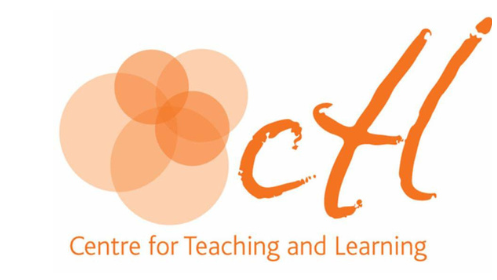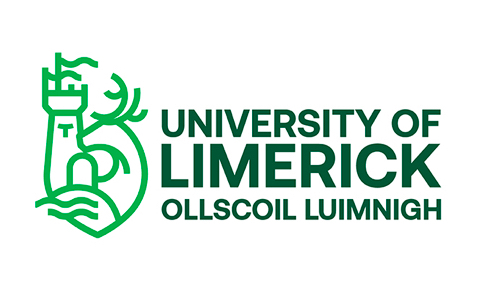What is the Regional Peer-Supported Learning Centre?
The Regional PSLC is a cross-institutional centre for promoting effective, learner-focused Peer Supported learning systems by building on the experience and expertise in Peer Supported learning in all Shannon Consortium partner institutions, particularly that related to UL's highly successful academic enrichment programme known as Peer Supported Learning Groups (PSLG).
The centre, which is based in the University of Limerick and located in room C2061 in the Main Building, is one of five learner support centres that are part of the Centre for Teaching & Learning.
What are PSLG?
Peer-Supported Learning Groups (PSLG) is a proactive academic enrichment programme that targets difficult modules/subjects. It fosters cross-year support between students on the same course by encouraging them to support each other and to learn co-operatively under the guidance of students from the year(s) above. The programme operates regular weekly scheduled module-oriented sessions that:
- Have academic/subject focus yet supports social learning through small group discussions and co-operative learning;
- Are supplemental to teaching: subject content for discussion drawn from existing course materials (lecture notes, workbooks, textbooks, etc.);
- Are facilitated by trained PSLG Leaders, students who took the same modules the previous years: Leaders facilitate and encourage the group to process the material rather than teach the participants;
- Nurture interdependent learning, whereby active collaborative group learning is encouraged, participatory and facilitated by the Leaders.
Main ideas on which PSLG are based
- Involves active learning in small groups
- Encourages collaborative learning
- Works both on what students learn and how they learn
- Provides opportunities to practice using the language of the subject
- Operates in a safe, friendly and supportive environment
- Benefits all students regardless of their academic abilities
How does PSLG operate?
- PSLG operates regularly (weekly) scheduled sessions led by trained student leaders
- PSLG sessions have academic focus yet support social learning through small group discussions and cooperative learning facilitated by the Leaders
- Supplemental to teaching: subject content for discussion drawn from existing course materials (lecture notes, workbooks, textbooks, etc.)
- Learning is interdependent: Active collaborative group learning is encouraged, participatory and facilitated by the Leaders
Examples of PSLG session activities
- Review/summarise lecture material in various ways to improve understanding
- Practice presentations and analyse what makes a good presentation
- Analyse essay questions, identify keywords and main issues to cover, discuss essay structure, referencing, plagiarism, etc.
- Review module material by devising a quiz
- Share exam revision techniques, plan outline answers to questions in past papers, etc.
Typical structure of a PSLG session
- Welcome
- Share news items of relevance to the module
- Brief summary of main points from each of their week's lectures
- Check previously agreed topic for discussion and agree on items for discussion
- Small group discussion or pair work. Plenary feedback from each small group/pair facilitated by PSLG Leader
- Whole group agrees on topic for discussion next week
- Leader emails group 2-3 days before next session to remind students of the agreed topic and to bring relevant notes
What are the benefits of PSLG?
Peer-Supported Learning (PSL) is where a student receives academic support from other students in the same course. This cross-course relationship produces a supportive and non-threatening environment where a student can comfortably ask questions and gain knowledge.
Even though different models of peer-support learning emphasise different elements and objectives, a number of advantages are common to most PSL programmes.
- Nurture independent learning: students are likely to be more active and involved in their learning.
- During peer sessions, a student's capacity to contribute, question and receive feedback is greater.
- Students take personal responsibility for their own learning.
- Peer support programmes encourage cooperation among students.
- Research has found that peer-support learning leads to better application of knowledge and skills to new situations.
- Peer support sessions allow for greater disclosure and opportunities to respond for students resulting in less anxiety and fear of making errors.
- Students can use peer support learning to develop long-lasting study groups and learning communities
- The relaxed, informal atmosphere can help to build a student's confidence and self-esteem, this can be particularly important for first-year students.
References
Topping, K.J., and Ehly, S.W., (1998), Peer-assisted learning, Lawrence Erlbaum Associates.
Velez, J.J., Wolf, K.J., and Cano, J., (2007), Student perceived benefits of peer-assisted instruction, Proceedings of the 2007 AAAE Research Conference, Volume 34
Royse, D., (2001), Teaching Tips for College and University Instructors: A Practical Guide, Allyn and Bacon Publishers
Johnson, D.W. and Johnson, R.T., (1991), Learning together and alone: Cooperative, competitive and individualistic, 3rd ed, Prentice Hall
PSLG Leader Training
The centre runs a number of PSLG student leader training workshops at the beginning of each academic semester. These workshops are designed to equip the student leaders with various techniques that can be used for facilitation during PSLG sessions. Announcements and information about the training will be posted regularly on this website on the homepage.
The PSLC can also provide induction/training workshops for teaching and administrative staff who are interested in/planning to initiate a PSLG programme for their module/course, department or college. This type of training is designed to provide a hands-on introduction to PSLG with a particular focus on how to set up, implement, coordinate, evaluate and maintain a successful peer-supported learning programme.


